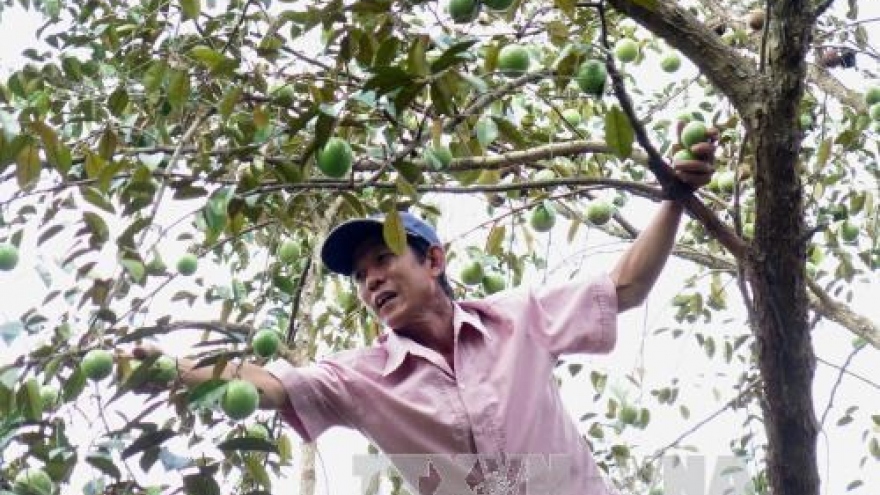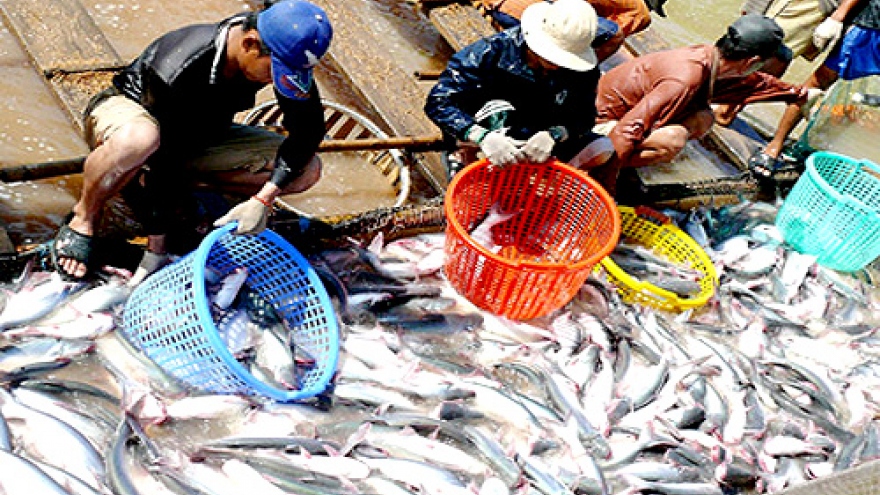Avenues of opportunity for Vietnamese exports to US
VOV.VN - Economic expert Dr. Tran Du Lich has pointed out huge opportunities for Vietnamese exports to the US market, especially after Nutifood Vietnam, a private business, won a contract to export dairy products to the US, one of the world’s most demanding consumption markets.
 |
“We hope that the government will persist with institutional reforms in connection with the business environment to facilitate export expansion. Private businesses should be incentivized to become involved in Vietnam’s export activities in the background developing the private economic sector is seen as a driving force of the national economy,” he says.
Looking back on Vietnam’s export markets last year, the US remained the leading market for Vietnam’s exports with a value of US$41.5 billion, a year-on-year rise of 8%. Trade into the vast market rose by 11.6% to US$1.19 billion in the first month of this year.
Ta Hoang Linh, Head of the Department for the Europe and America Markets under the Ministry of Industry and Trade, says since the Vietnam-US Bilateral Trade Agreement (BTA) came into force, bilateral trade between the two countries has shown a consistently strong growth from US$220 million in 1994 to US$1.4 billion in 2001 and US$50.81 billion in late 2017.
Vietnam ranks 12th in merchandise exports to the US and 27th in imports and has emerged as the 16th largest trade partner of the powerful nation. Vietnam always maintaining a large trade surplus is an important point in the trade ties with the US. However, Vietnam’s key export products are primarily garments and textiles timber products, electronics, machinery and equipment, whereas exports of food and consumer goods make up a small proportion of its exports to the especially demanding market.
This year seafood exports to the market are forecast to face a number of difficulties presented by the Seafood Import Monitoring Program (SIMP) which became effective as of January 1, 2018. The Program aims to prevent illegal, unreported, and unregulated (IUU)-caught and/or misrepresented seafood from entering the US chain of commerce, resulting in much stricter controls on the origins of seafood exports to the country.
In addition, from 2018 Vietnamese cold-rolled steel exported to the US has been under the imposition of combined anti-dumping and anti-subsidy duties of 531%, while corrosion-resistant steel has been subject to duties of 238% as American steel producers claimed that Chinese steel was imported to Vietnam and then exported to the US to dodge heavy anti-dumping duties. Exports to the US are likely to be affected by the aforementioned factors.
Vietnamese products are losing their competitive edge because of too high duties, ranking first among exporters to the US. Thus, the two governments should accelerate the approval of a double taxation avoidance agreement and swiftly realize an agreement on cooperation and mutual support between customs agencies.



